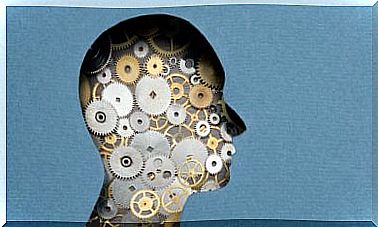When The Mouth Shuts, The Body Speaks

Sometimes people can’t find the words to express the pain they feel, so the body steps in and reacts. We don’t know how to name exactly what happens to us so that the people around us understand us. This inability to match our words with the emotions we feel is known in the field of psychology as alexithymia.
Psychological origin, real physical symptoms in our body
The fact that psychiatric disorders have a psychological origin does not mean that they do not manifest themselves in actual physical symptoms. Symptoms that hurt, bother and definitely interfere with a person’s life and satisfactory development.
It is not surprising that in mood disorders, such as depression, vegetative states, a change in the usual sleep pattern and many somatic complaints are observed: this is the somatization of sadness.
There are many types of depression, some characterized by a patient adopting an aggressive attitude, and some characterized by a patient adopting a passive attitude. In both, there is no communication of what one feels, at least not adequate communication. And then that feeling turns into a psychological and physical discomfort.

The price of being strong at all times: somatizing
When we do not communicate, we implicitly assume that we will not be listened to, that we do not have social strategies to make ourselves understood, or that we will be directly attacked. In a world where we are told that being strong is the most precious quality you can have, no one wants to go in the opposite direction.
Many of the people who do not express their discomfort do so because they cannot find the words for it, or simply someone has taught them throughout their upbringing that they will be exposed if they express themselves too much. Let’s not just blame the parents or teachers for this, but the whole society. They teach us all sorts of subjects, but the subject of getting to know each other emotionally is often left out.
The result of this idea is quite obvious: we avoid expressing how we feel, and when we want to realize, we no longer know why we feel bad. We have a retrograde amnesia that prevents us from being able to get to the real root of the problem, from understanding why it hurts so much and where all this pain came from.
The treatment of patients who somatize by health professionals
The comprehensive care of the person who goes to an appointment with a somatization disorder is quite deficient in some cases. These people need medical and psychological attention.
In some cases they are accused of histrionics, that is, manipulative and exaggerated, when in fact it has nothing to do with it. Unlike people with hypochondriasis, here the person is not convinced that he has a disease, he just doesn’t know what is happening.
Maybe so, maybe it’s right that they have an amplifying system of symptoms and a very self-centered focus. For example, a person with a high degree of neurosis may have this pattern of searching and over-testing symptoms.
Therefore, this person is perhaps more focused on their symptoms, and that is why their anxious mood is taking place. But the symptoms are still there, they are real: headaches, gastrointestinal discomfort, persistent chronic fatigue, etc.

The patient must be treated in a comprehensive way, taking into account the psychological characteristics that may be influencing their physical symptoms, and also evaluate how their physical symptoms worsen their psychological condition.
In many cases, when a somatic disease is not treated correctly, it becomes chronic and there can be a logical and terrible consequence for the person who suffers: the disease, already in its chronic form, causes the person to avoid any social activity or change your routine, believing that this way you avoid discomfort and that your symptoms will be more controlled in your daily routine. Little by little, the person will put aside their life because of their symptoms.
Psychosomatic illnesses are real and need specific treatment tailored to the characteristics of each patient. Once organic pathologies are discarded, professionals must be able to understand what the body is trying to say, because the mouth shuts up without giving an explicit reason for any specific cause.









